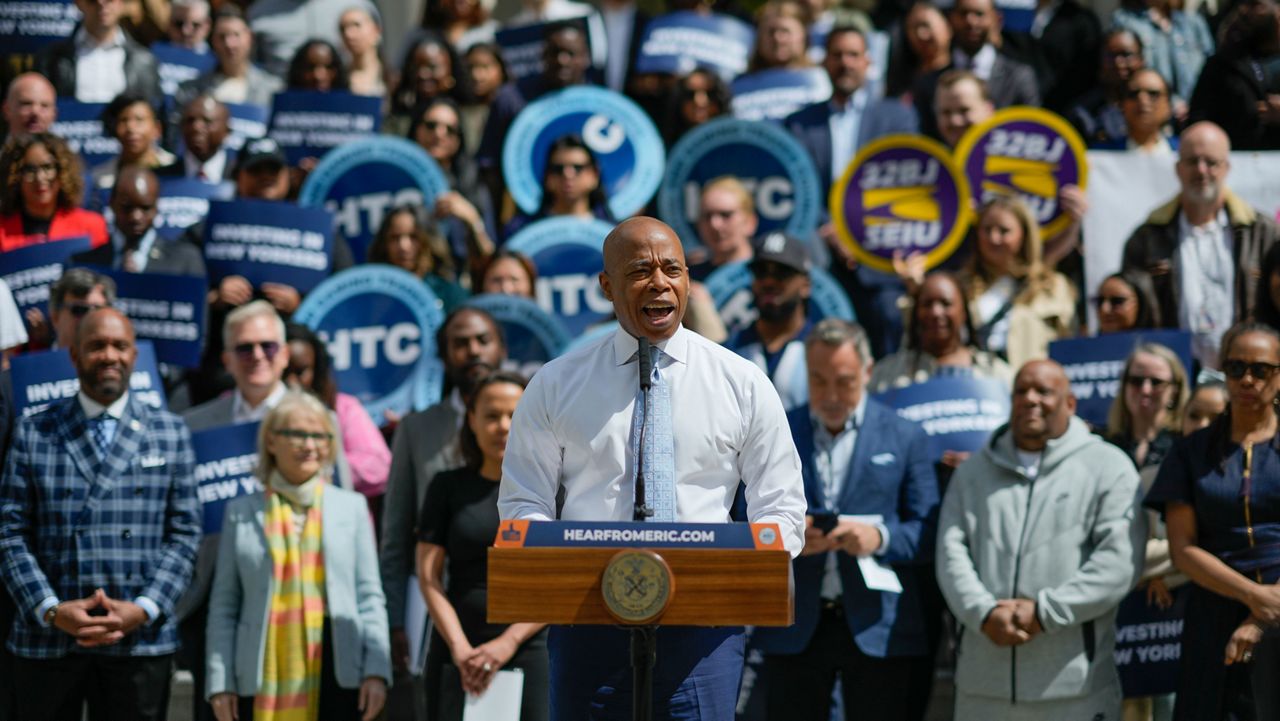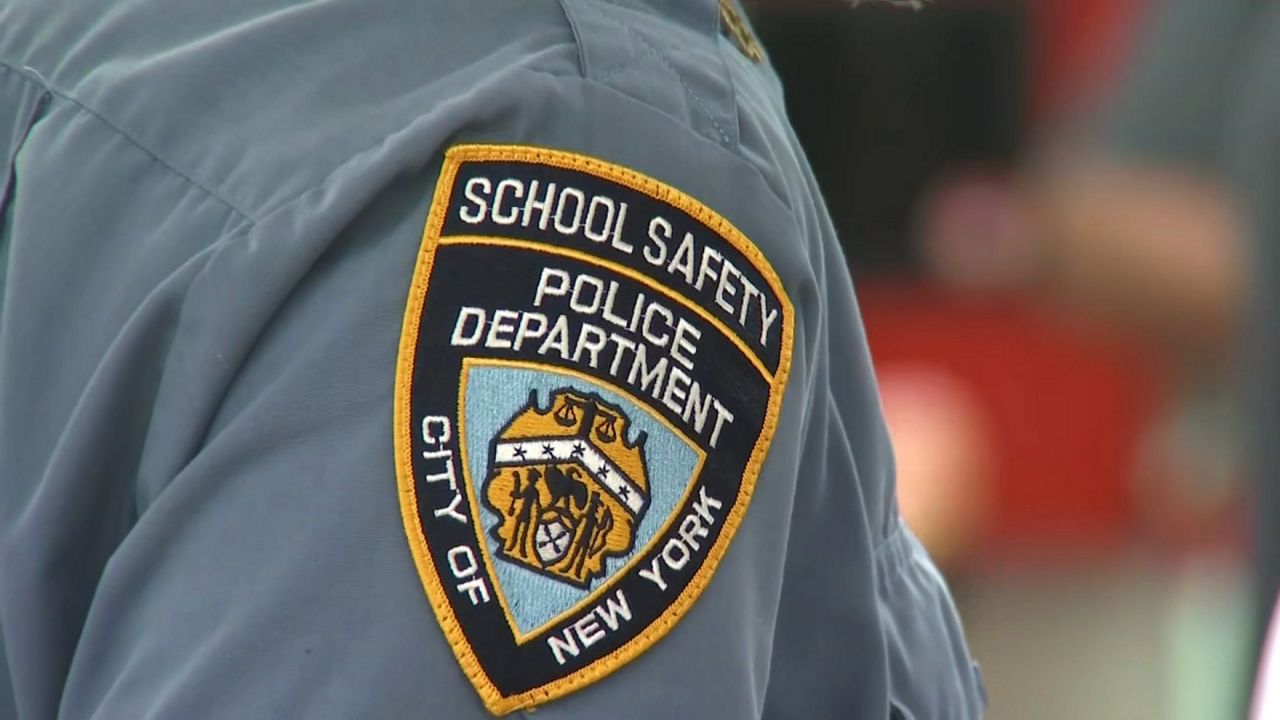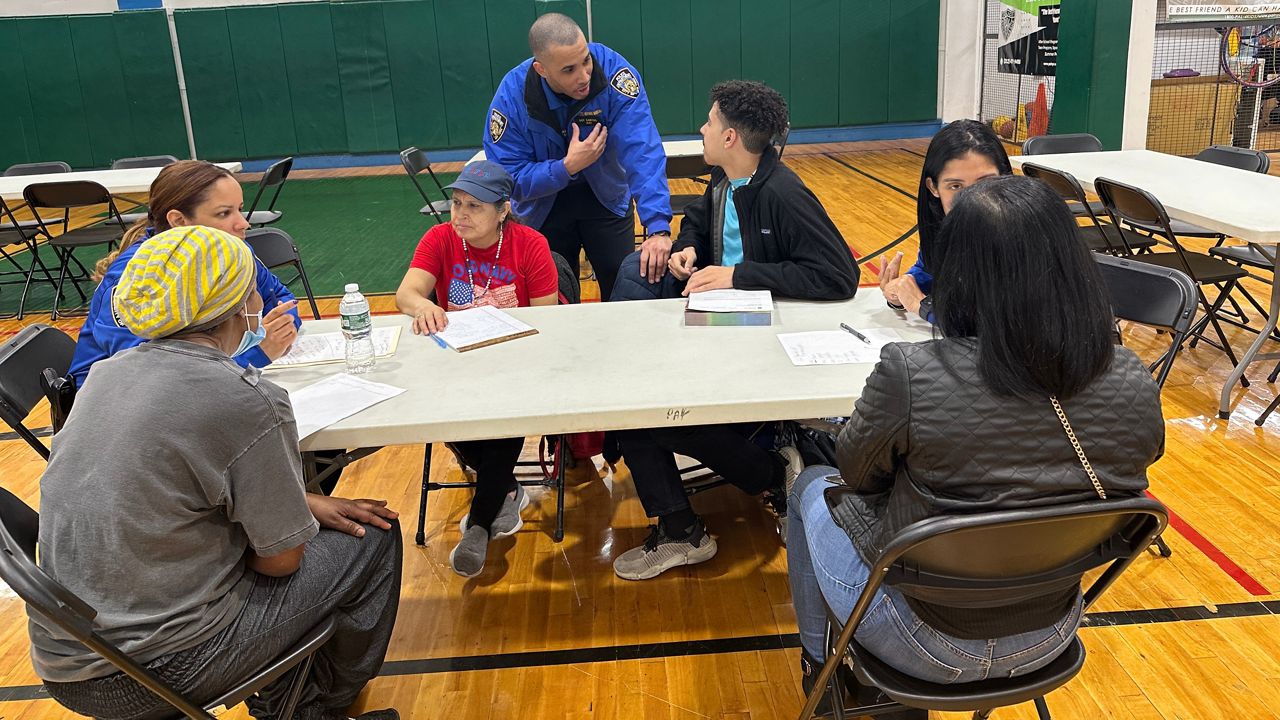After just six months of interning at the NYPD's "Options" program, 16-year-old Mia Guity said her perspective on the women and men who wear the uniform has changed.
“Before I would just completely avoid cops,” she said. “Now, I see a cop in the street, I smile at them. I say hi, I see if I know them."
Guity is one of the thousands of young adults who participate in workshops, training programs and internships at Options’ youth centers across the city.
As an intern, Guity is taught good workplace habits, and different professional skills like public speaking, by NYPD officers.
NYPD Detective Jason Anazagasty works closely with the teens like Guity. He was one of the co-founders of Options when it began in Brooklyn back in 2018.
Anazagasty said the goal has always been to provide teens with a safe place to spend their free time, learn career skills and have casual interactions with police.
“They see us in a different light and that's exactly what we want to show our community,” he said. “We’re here to serve them and give them all these opportunities, pathways, skillsets to technology to help them.”
The New York City Police Foundation funds the program and has expanded Options to Queens and the Bronx. The new Bronx site, which opened last year, features state-of-the art technology and programming to help teens grow both personally and professionally.
That includes a virtual-reality gaming system.
The stimulator can create custom situations teens may face and police mentors can coach them through making safe choices.
“They get a chance to see that we are human beings and we get a chance to talk to them and find out what's going on in their neighborhoods,” said Mark Stewart, the deputy commissioner of the NYPD’s Community Affairs Bureau.
The center also features a music and art studio, a computer lab and a gaming room.
The leadership at Options brings working professionals into the space to speak to teens about activities they enjoy and how they can pursue them as career paths.
During NY1’s visit, students from a local high school were sitting in on presentations with representatives from different trade industries.
In staying true to its name, the program is designed to provide young people with different options for career paths after high school, while also helping them build necessary skills and connections to those already working.
“Young people learn about themselves, learn how to make better decisions, learn about career opportunities, and along the way build trust with the police,” said Gregg Roberts, the executive director of the New York City Police Foundation.
During Guity’s time with Options, she attended workshops about hydroponic farming, growing food for communities using water-based nutrient solutions rather than soil.
She even gave a presentation on it to the police commissioner last winter.
“What was out of my comfort zone before is slowly becoming my comfort zone now,” Guity said.
This spring, the police foundation is expanding Options programming at the Bronx location, funding the creation of an actual indoor hydroponic farm to both serve the surrounding community and expose young residents to new experiences and skills.


_Pkg_NYPD_options_CG_129410868_3819?wid=320&hei=180&$wide-bg$)




